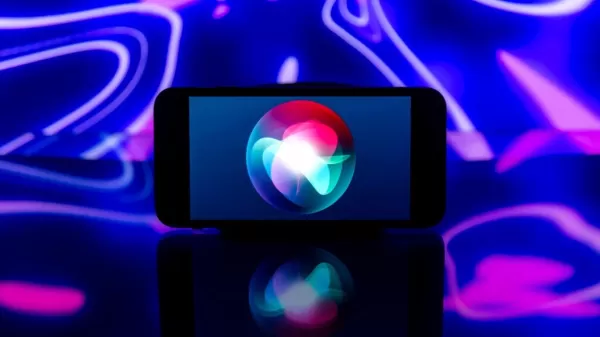Apple's $95M Siri Settlement: Potential Payout Details Revealed

Apple Settles Class Action Lawsuit Over Siri Privacy Concerns
If you're one of the millions of Apple users, you might be in for a small windfall. Apple recently agreed to shell out $95 million to settle a class action lawsuit from 2019, which alleged that Siri was eavesdropping on users' conversations without their consent. This news, first reported by Reuters, has sparked quite a buzz in the tech world.
Lopez v. Apple, Inc.
The lawsuit, known as Lopez v. Apple, Inc., was brought forward by three plaintiffs who claimed that Apple designed Siri to listen in on conversations even when the wake phrase "Hey Siri" wasn't used. They further alleged that Apple breached their privacy by sharing these recordings with third-party contractors. For instance, two plaintiffs mentioned that after talking about Air Jordan sneakers and Olive Garden restaurants, they were bombarded with ads for those products. Another plaintiff claimed he received ads for a surgical procedure after discussing it privately with his doctor.
Apple, on its part, has denied any wrongdoing but has agreed to settle the lawsuit. The settlement still needs the green light from U.S. District Judge Jeffrey White in Oakland, California, before any payouts can be made.
How Much You Could Get
So, how much could you potentially pocket? It depends on how many Siri-enabled devices you own. According to the preliminary settlement agreement, as shared by Ars Technica, you could claim up to $20 per device, with a cap of five devices per person. However, the settlement is specific—it only applies to current or former U.S. owners of Siri devices whose private conversations were captured and shared due to unintended Siri activation between September 17, 2014, and the settlement date. This means that not all Siri users will be eligible for a payout, but rather those who can prove Siri was snooping on their conversations.
Once the settlement gets the final nod from the judge, expected within 45 days, you'll be able to find out how to claim your share on the settlement website. The class action period covers from September 17, 2014, to December 31, 2024, spanning over a decade of Siri usage.
Impact on Apple's Reputation
For a giant like Apple, which raked in $93.74 billion in its latest fiscal year, $95 million is a drop in the bucket—roughly equivalent to nine hours of profit, according to Reuters. While the financial hit might not sting much, the reputational damage could be more significant. Apple has always prided itself on its commitment to privacy, setting itself apart from competitors like Microsoft and Google. However, if the allegations hold true, it seems the company might have compromised its own privacy standards.
The public has been increasingly wary of voice assistants potentially recording and sharing private conversations without consent. Even though Apple denies any wrongdoing, the settlement suggests a desire to avoid further legal battles and move past the controversy, which doesn't look good for the tech giant.
Before the lawsuit was even filed, The Guardian had already raised concerns about Siri's privacy in early 2019, citing a whistleblower who revealed that Apple contractors could hear confidential conversations during quality control checks. In response, Apple made significant changes to Siri in August 2019, including suspending human grading of responses, stopping the storage of Siri conversations, and making Siri training an opt-in process. Even for users who opted in, the recordings would only be accessible to Apple employees and not outside contractors.
Here's what an Apple spokesperson told ZDNET about the situation: "Siri has been engineered to protect user privacy from the beginning. Siri data has never been used to build marketing profiles and it has never been sold to anyone for any purpose. Apple settled this case to avoid additional litigation so we can move forward from concerns about third-party grading that we already addressed in 2019. We use Siri data to improve Siri, and we are constantly developing technologies to make Siri even more private."
Google Faces Similar Allegations
Apple isn't alone in this privacy quagmire. Google is also facing a similar class action lawsuit over its voice assistant, with the same law firms representing the plaintiffs in both cases. This lawsuit is being heard in a San Jose, California federal court, as noted by Reuters.
Related article
 Does Training Mitigate AI-Induced Cognitive Offloading Effects?
A recent investigative piece on Unite.ai titled 'ChatGPT Might Be Draining Your Brain: Cognitive Debt in the AI Era' shed light on concerning research from MIT. Journalist Alex McFarland detailed compelling evidence of how excessive AI dependency can
Does Training Mitigate AI-Induced Cognitive Offloading Effects?
A recent investigative piece on Unite.ai titled 'ChatGPT Might Be Draining Your Brain: Cognitive Debt in the AI Era' shed light on concerning research from MIT. Journalist Alex McFarland detailed compelling evidence of how excessive AI dependency can
 Easily Generate AI-Powered Graphs and Visualizations for Better Data Insights
Modern data analysis demands intuitive visualization of complex information. AI-powered graph generation solutions have emerged as indispensable assets, revolutionizing how professionals transform raw data into compelling visual stories. These intell
Easily Generate AI-Powered Graphs and Visualizations for Better Data Insights
Modern data analysis demands intuitive visualization of complex information. AI-powered graph generation solutions have emerged as indispensable assets, revolutionizing how professionals transform raw data into compelling visual stories. These intell
 Transform Your Sales Strategy: AI Cold Calling Technology Powered by Vapi
Modern businesses operate at lightning speed, demanding innovative solutions to stay competitive. Picture revolutionizing your agency's outreach with an AI-powered cold calling system that simultaneously engages dozens of prospects - all running auto
Comments (1)
0/200
Transform Your Sales Strategy: AI Cold Calling Technology Powered by Vapi
Modern businesses operate at lightning speed, demanding innovative solutions to stay competitive. Picture revolutionizing your agency's outreach with an AI-powered cold calling system that simultaneously engages dozens of prospects - all running auto
Comments (1)
0/200
![TimothyEvans]() TimothyEvans
TimothyEvans
 August 21, 2025 at 11:01:17 PM EDT
August 21, 2025 at 11:01:17 PM EDT
Wow, $95M for Siri snooping? That's a hefty price for a virtual assistant with eavesdropping skills! I wonder how much each user will actually get—probably enough for a coffee, right? 😄 Curious to see if this makes Apple rethink Siri's 'listening' habits.


 0
0

Apple Settles Class Action Lawsuit Over Siri Privacy Concerns
If you're one of the millions of Apple users, you might be in for a small windfall. Apple recently agreed to shell out $95 million to settle a class action lawsuit from 2019, which alleged that Siri was eavesdropping on users' conversations without their consent. This news, first reported by Reuters, has sparked quite a buzz in the tech world.
Lopez v. Apple, Inc.
The lawsuit, known as Lopez v. Apple, Inc., was brought forward by three plaintiffs who claimed that Apple designed Siri to listen in on conversations even when the wake phrase "Hey Siri" wasn't used. They further alleged that Apple breached their privacy by sharing these recordings with third-party contractors. For instance, two plaintiffs mentioned that after talking about Air Jordan sneakers and Olive Garden restaurants, they were bombarded with ads for those products. Another plaintiff claimed he received ads for a surgical procedure after discussing it privately with his doctor.
Apple, on its part, has denied any wrongdoing but has agreed to settle the lawsuit. The settlement still needs the green light from U.S. District Judge Jeffrey White in Oakland, California, before any payouts can be made.
How Much You Could Get
So, how much could you potentially pocket? It depends on how many Siri-enabled devices you own. According to the preliminary settlement agreement, as shared by Ars Technica, you could claim up to $20 per device, with a cap of five devices per person. However, the settlement is specific—it only applies to current or former U.S. owners of Siri devices whose private conversations were captured and shared due to unintended Siri activation between September 17, 2014, and the settlement date. This means that not all Siri users will be eligible for a payout, but rather those who can prove Siri was snooping on their conversations.
Once the settlement gets the final nod from the judge, expected within 45 days, you'll be able to find out how to claim your share on the settlement website. The class action period covers from September 17, 2014, to December 31, 2024, spanning over a decade of Siri usage.
Impact on Apple's Reputation
For a giant like Apple, which raked in $93.74 billion in its latest fiscal year, $95 million is a drop in the bucket—roughly equivalent to nine hours of profit, according to Reuters. While the financial hit might not sting much, the reputational damage could be more significant. Apple has always prided itself on its commitment to privacy, setting itself apart from competitors like Microsoft and Google. However, if the allegations hold true, it seems the company might have compromised its own privacy standards.
The public has been increasingly wary of voice assistants potentially recording and sharing private conversations without consent. Even though Apple denies any wrongdoing, the settlement suggests a desire to avoid further legal battles and move past the controversy, which doesn't look good for the tech giant.
Before the lawsuit was even filed, The Guardian had already raised concerns about Siri's privacy in early 2019, citing a whistleblower who revealed that Apple contractors could hear confidential conversations during quality control checks. In response, Apple made significant changes to Siri in August 2019, including suspending human grading of responses, stopping the storage of Siri conversations, and making Siri training an opt-in process. Even for users who opted in, the recordings would only be accessible to Apple employees and not outside contractors.
Here's what an Apple spokesperson told ZDNET about the situation: "Siri has been engineered to protect user privacy from the beginning. Siri data has never been used to build marketing profiles and it has never been sold to anyone for any purpose. Apple settled this case to avoid additional litigation so we can move forward from concerns about third-party grading that we already addressed in 2019. We use Siri data to improve Siri, and we are constantly developing technologies to make Siri even more private."
Google Faces Similar Allegations
Apple isn't alone in this privacy quagmire. Google is also facing a similar class action lawsuit over its voice assistant, with the same law firms representing the plaintiffs in both cases. This lawsuit is being heard in a San Jose, California federal court, as noted by Reuters.
 Does Training Mitigate AI-Induced Cognitive Offloading Effects?
A recent investigative piece on Unite.ai titled 'ChatGPT Might Be Draining Your Brain: Cognitive Debt in the AI Era' shed light on concerning research from MIT. Journalist Alex McFarland detailed compelling evidence of how excessive AI dependency can
Does Training Mitigate AI-Induced Cognitive Offloading Effects?
A recent investigative piece on Unite.ai titled 'ChatGPT Might Be Draining Your Brain: Cognitive Debt in the AI Era' shed light on concerning research from MIT. Journalist Alex McFarland detailed compelling evidence of how excessive AI dependency can
 Easily Generate AI-Powered Graphs and Visualizations for Better Data Insights
Modern data analysis demands intuitive visualization of complex information. AI-powered graph generation solutions have emerged as indispensable assets, revolutionizing how professionals transform raw data into compelling visual stories. These intell
Easily Generate AI-Powered Graphs and Visualizations for Better Data Insights
Modern data analysis demands intuitive visualization of complex information. AI-powered graph generation solutions have emerged as indispensable assets, revolutionizing how professionals transform raw data into compelling visual stories. These intell
 Transform Your Sales Strategy: AI Cold Calling Technology Powered by Vapi
Modern businesses operate at lightning speed, demanding innovative solutions to stay competitive. Picture revolutionizing your agency's outreach with an AI-powered cold calling system that simultaneously engages dozens of prospects - all running auto
Transform Your Sales Strategy: AI Cold Calling Technology Powered by Vapi
Modern businesses operate at lightning speed, demanding innovative solutions to stay competitive. Picture revolutionizing your agency's outreach with an AI-powered cold calling system that simultaneously engages dozens of prospects - all running auto
 August 21, 2025 at 11:01:17 PM EDT
August 21, 2025 at 11:01:17 PM EDT
Wow, $95M for Siri snooping? That's a hefty price for a virtual assistant with eavesdropping skills! I wonder how much each user will actually get—probably enough for a coffee, right? 😄 Curious to see if this makes Apple rethink Siri's 'listening' habits.


 0
0





























